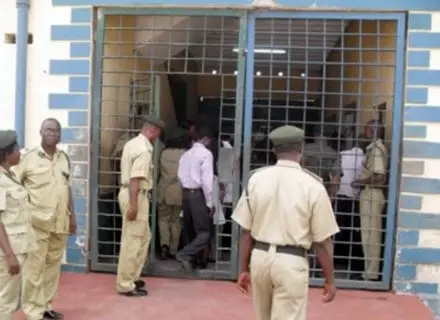National Issues
Deadly Detentions In Nigeria -By Ike Willie-Nwobu
It may be argued that those detained by the army who met their death while in detention deserved what they got for being responsible for some of the worst atrocities committed against Nigerians in the Northeast and Northwest, but who is to say? Without the level of accountability and transparency that judicial proceedings offer, who is to say who did what, when and where in the heinous crimes committed against innocent men women and children in Nigeria for more than a decade now.

For the Nigerian military, the past decade, especially the battle against Boko Haram, has been an excruciating exercise in treading the fine line between securing Nigeria and respecting the human rights of Nigerians.
When two elephants tangle, it is the grass that is ultimately trampled. The history of war has always shown that when having to choose between the slower but safer option of respecting human rights while prosecuting war, and the faster but costlier option of discarding human rights while at it, combatants often favor the latter.
In respecting human rights, national armies should certainly do better than non-state actors. It is not the case in Nigeria, according to Amnesty International.
The group has alleged that more than 10,000 people have died in military detentions since the war against Boko Haram started. This has precipitated a suit by the organization at the International Court of Justice(ICJ).
In more than a decade of fighting, the Nigerian army has prosecuted a full-blooded, bloody and heartbreaking war against the non-state actors determined to overrun Nigeria.
Defying death and the debilitating dysfunction of the Nigerian system, soldiers have battled hard in unforgiving battlefields of the Northeast and Northwest, battering terrorist formations and thwarting their plans to overrun Nigeria.
What makes military detentions so deadly? The obvious answer is that they are done outside the law. Because they are outside the law, the law cannot really shine a light to determine what happens when soldiers detain anyone. As a result of the obscurity, the conditions are unknown and impossible to conclusively determine.
But they can’t be good. If they have resulted in about 10,000 deaths in just over ten years at the rate of 1000 deaths every year, the conditions must be horrendous enough to cut lives short.
Another reason why the military ‘s detention conditions must be indescribably horrible is that this is Nigeria where prison conditions are notorious for their designs and determination to strip detainees of every iota of dignity.
With Amnesty International taking up the matter at the International Criminal Court much to the chagrin of the Nigerian authorities, a beleaguered country faces unwelcome and unwanted scrutiny.
It may be argued that those detained by the army who met their death while in detention deserved what they got for being responsible for some of the worst atrocities committed against Nigerians in the Northeast and Northwest, but who is to say? Without the level of accountability and transparency that judicial proceedings offer, who is to say who did what, when and where in the heinous crimes committed against innocent men women and children in Nigeria for more than a decade now.
The Nigerian army is not a court of law and given the notoriously difficult relationship between the army and civilians on one hand, and their infamous impatience with the rule of law, they cannot be trusted to detain anyone beyond the time allowed by the law, without handing them over to appropriate authorities for prosecution.
It is an inimical indictment of the Nigerian state that, so many are alleged to have died in its detention. At a time when innovation in fighting crime has seen advanced countries record empty detention centers because crime levels have dropped significantly, it is scandalous that so many die in detention anywhere in Nigeria, a country which aspires to first-world status.
All is no longer fair in war. In prosecuting the war against terror, Nigeria must be seen to strictly stick to the rules of engagement. Nigerian soldiers have been heroic in defending Nigerians from terrorists, but they must do more.
Experience has shown that egregious human rights abuses including extra-judicial killings exacerbate terrorism.
It is in the interest of every Nigerian that this war ends soon.
Ike Willie-Nwobu,
Ikewilly9@gmail.com










